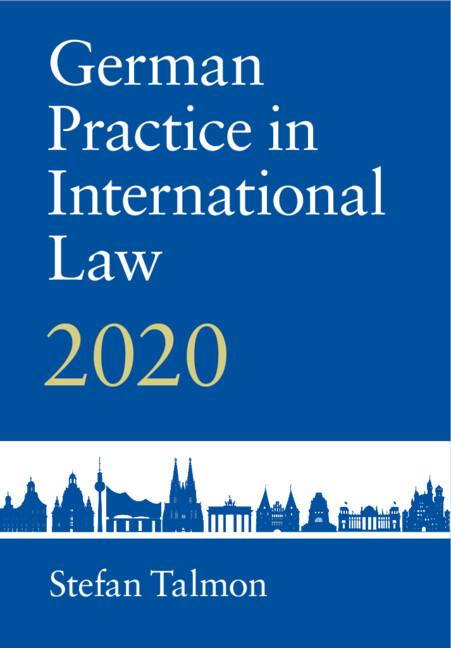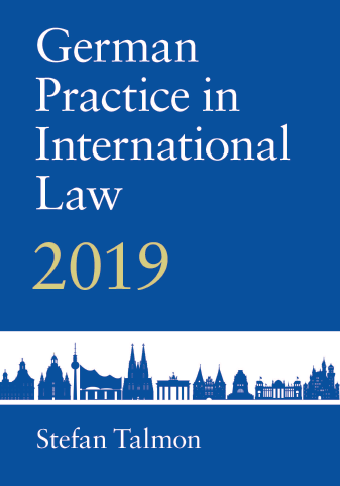Volume 2 of German Practice in International Law Published
Published 15 February 2023 Author: Stefan Talmon
We are delighted to announce that the second volume of German Practice in International Law has been published by Cambridge University Press. This volume assembles seventy-three case studies by twenty-one authors, a 102-page digest section with notable statements on international law by Germany and a list of international agreements concluded by Germany in 2020. The 2021 volume is to follow at the end of this year. Please support the GPIL project by recommending the books to your librarian.


